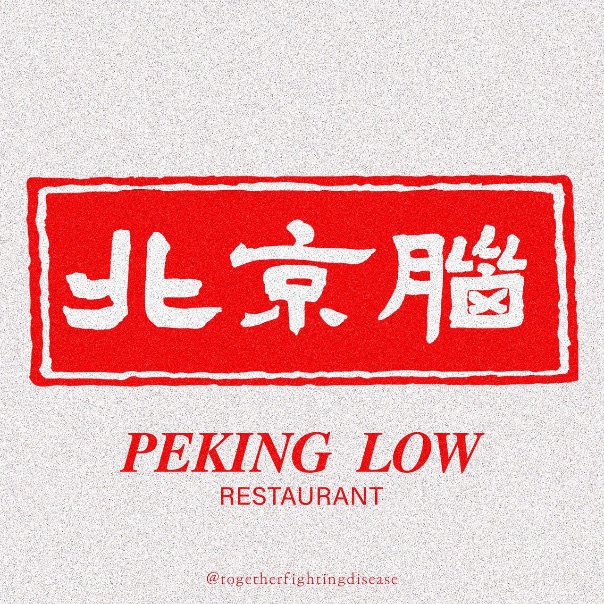Archive for Language and politics
A word for parents who lose an only child
It is well known that the PRC had a one-child policy from 1979-2015. This means that, for most Chinese children born during this period, they would have no brothers and sisters. As such, they were inestimably precious in a country that lacks adequate social benefits for people to live on after retirement, but who — in large measure — had to rely on their lone offspring to support them. Such a practical consideration was matched by the psychological devastation experienced when a couple lost their sole, beloved child.
"Chinese parents who lose their only child — a tragedy so common there’s a word for it",
Read the rest of this entry »
On the etymology of the title Tham of Burusho kings
[The following is a guest post by John Mock. I am impressed by how much detailed scholarship (although perhaps not always of great precision and rigor) on such an esoteric matter as that discussed herein already existed in the 18th and 19th centuries.]
John Biddulph in his book Tribes of the Hindoo Koosh (Calcutta: Office of the Superintendent of Government Printing, 1880), p. 24, wrote:
I have been told by a Nepalese gentleman that Thum is a Chinese title, meaning Governor, and that it is used in a reduplicated form Thum Thum, to signify a Governor General. [footnote: It is perhaps a corruption of the word Tung, which appears in many titles. The Chinese Governor of Kashgaria is called Tsung Tung, and the officer who commands the troops is styled Tung-lung.] Its very existence in these countries, where its origin has been completely lost sight of, is curious and must be extremely ancient.
Henry H. Howorth, in his article "The Northern Frontagers of China. Part VIII. The Kirais and Prester John", Journal of the Royal Asiatic Society of Great Britain and Ireland, vol. 21 no. 2 (1889), pp. 383-5, discussing Tang relations with Uighurs, wrote:
The Chinese emperor at this time was called Tham vu tsum.", and, “During the reign of Tham yi tsum, from 860 to 874….
Read the rest of this entry »
Automatic deletion of "communist bandit" by YouTube
Watch a commenter enter "gòngfěi 共匪" ("communist bandits") in the blue selection panel, post it, and then see it disappear within 15 seconds.
#YouTube "automatically" deletes a comment in Chinese, "Gongfei", which means "communist bandit", in 15 seconds.
This person tested 3 times, same result. #油管 15秒內自動刪除「共匪」留言,網友連試三次皆如此。
他們找了個比李飛飛更厲害的AI專家? pic.twitter.com/MLCeko0SIY— Inconvenient Truths by Jennifer Zeng 曾錚真言 (@jenniferzeng97) May 13, 2020
Read the rest of this entry »
Shifting valences of "throwing the pot" in Chinese
There's an odd expression that has become virally popular in the PRC in recent weeks, viz., shuǎi guō 甩锅 (lit., "throw / toss the pot / pan", i.e., "shift the blame; pass the buck").
Expressions related to guō 锅 ("pot / pan") are not new. For example, bèi guō 背锅 ("bear the blame"), and guō cóng tiān jiàng 锅从天降 ("accusation / blame coming from nowhere", lit., "pot falling from the sky"). Together with shuǎi guō 甩锅 (lit., "throw / toss the pot / pan") itself, they were popular long before their current application in connection with accusations of responsibility and culpability for the COVID-19 pandemic.
Read the rest of this entry »
Wolf Warrior Diplomacy
A little over two years ago, I made a rather detailed post on Lycogala epidendrum, commonly known as wolf's milk or groening's slime, and its metaphorical applications in China:
"Wolf's milk, a slime mold attractive to young Chinese?" (4/7/18)
During the interim, the popularity of this lowly amoeba has only grown, until it has become the model for an aggressive style of diplomacy on the world stage called in Chinese "zhàn láng wàijiāo 戰狼外交" ("wolf warrior diplomacy"). Synergistically, it has joined forces with another microoranism, this one called severe acute respiratory syndrome coronavirus 2 (SARS-CoV-2), also known as coronavirus disease 2019 (COVID-19) and a host of other names that I will refrain from mentioning here for fear of pushing the wrong buttons (this is highly fraught topic, one that must be treated delicately, lest one stirs up a hornets' nest of conflicting onomastic opinions). Together, COVID-19 and wolf warrior diplomacy have brought the world to the brink of pandemic strife.
Read the rest of this entry »
Obsession with civilized behavior
In Chinese media, we often encounter exhortations to wénmíng xíngwéi 文明行为 ("civilized behavior"), but in this article, they've really gone over the top in promoting it:
"Běijīng wénmíng cùjìn tiáolì tōngguò tíchàng zhèxiē wénmíng xíngwéi 北京文明促进条例通过 提倡这些文明行为" ("Beijing passes regulations for the advancement of civilization; for the promotion of these [types of] civilized behavior"), people.com (4/24/20)
Just counting wénmíng xíngwéi 文明行为 ("civilized behavior"), this four syllable, two word phrase is mentioned 17 times in this article. If we count only the two syllable word wénmíng 文明 ("civilized; civilization"), it occurs 30 times. I won't mention all of the more than sixty types of civilized behavior that are encouraged or required, but will note only those that are likely related to the COVID-19 pandemic, the proximate cause for the passage of these regulations:
Read the rest of this entry »
WeChat COVID-19 ditty
This little Stück of piecemeal wordplay has been making the rounds on WeChat. It seems to be an amalgam of several little coronavirus memes that had appeared in isolation.
gélí rénquán méile 隔离人权没了
bù gélí rén quán méile 不隔离人全没了
tiānshàng biānfú, dìshàng Chuānpǔ 天上蝙蝠,地上川普
yīgè yǒudú, yīgè méipǔ 一个有毒,一个没谱
bù dài kǒuzhào nǐ shìshì 不戴口罩你试试
shìshì jiù shìshì 试试就逝世
A rather literal translation might go as follows:
隔离人权没了 With the quarantine, there are no human rights.
不隔离人全没了 Without the quarantine, the humans will be all gone.
天上蝙蝠,地上川普 In the sky are bats, on the earth there's Trump.
一个有毒,一个没谱 One has a virus, the other has no clue/no plan.
不戴口罩你试试 Just try not wearing a face mask.
试试就逝世 If you try it, you'll die.
Read the rest of this entry »
"Crisis = danger + opportunity" in America and in PRC official media
From Gillian Hochmuth:
Read the rest of this entry »
Roll out of here like an egg, Xi
Tweet from Heitor@Heitormde:
Olha o nível que tá chegando. O mundo já está lascado demais para vir um cara e fazer um negócio desse. Isso é crime! pic.twitter.com/PDzujzIpbN
— Heitor (@Heitormde) March 20, 2020
The 0:36 video was taken just outside the gate of the Chinese embassy in Brasilia.
Read the rest of this entry »
Memes, parodies, puns, and other devices for discussing the coronavirus inside the Great Firewall
In the PRC, you'd best not say anything about COVID-19. It's more or less forbidden for citizens to talk about it, much less question the government's handling of the CRISIS (not a "dangerous opportunity"). Even the name and the very existence of the disease are highly problematic. Still, despite all the draconian censorship, people figure out various ways to circumvent the prohibitions and express their feelings and opinions.
"The coronavirus is inspiring memes, parodies and art in Asia as a way to cope", by David Pierson, Los Angeles Times (3/6/20)
"‘Noodles’ and ‘Pandas’: Chinese People Are Using Secret Code to Talk About Coronavirus Online". "'Vietnamese pho noodles,' anyone?", by David Gilbert, VICE (3/6/20)
Read the rest of this entry »


